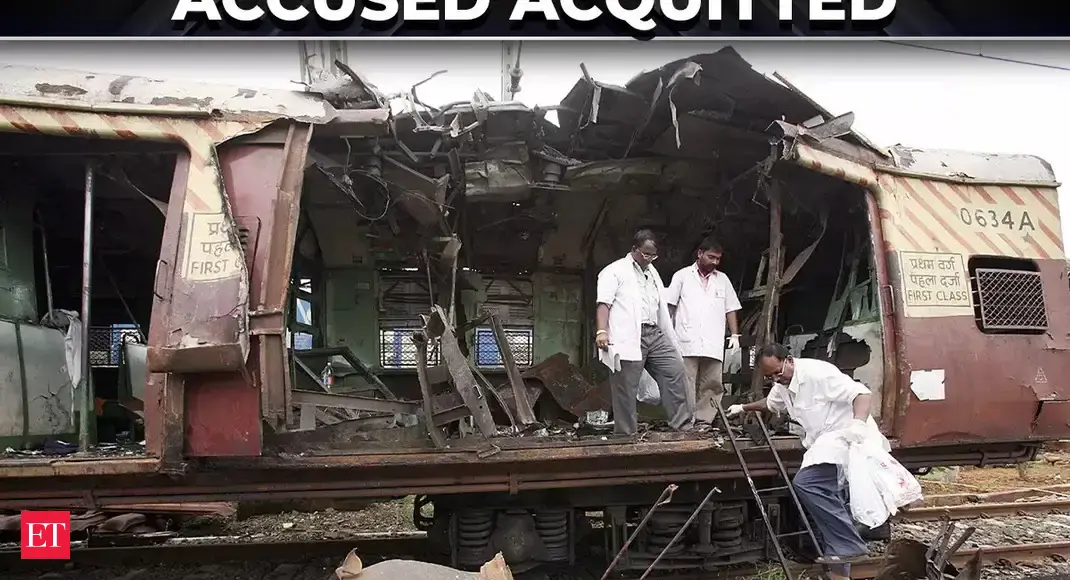

In a significant turn of events, the Bombay High Court acquitted all 12 individuals who had been convicted in connection with the 2006 Mumbai train bombings. This decision overturns a ruling from a special court in 2015 that sentenced five of the accused to death and the remaining seven to life imprisonment. The High Court cited a lack of conclusive evidence and stated that the prosecution had "utterly failed" to prove the case against the accused.
The 2006 Mumbai train bombings were a series of seven bomb blasts that occurred on July 11, 2006, within a span of 11 minutes on the Mumbai Suburban Railway. These bombings targeted the Western Line of the suburban rail network, with bombs placed in pressure cookers. The blasts resulted in the deaths of 189 people and injuries to over 800. The attacks took place at or near the Matunga Road, Mahim Junction, Bandra, Khar Road, Jogeshwari, Bhayandar, and Borivali railway stations.
Following the bombings, investigations led to the arrest of several suspects. In 2015, a special court convicted 12 individuals under the Maharashtra Control of Organised Crime Act (MCOCA). Five of them were sentenced to death for their direct involvement in planting the bombs, while the other seven received life sentences for other forms of involvement.
The recent High Court ruling has cast serious doubts on the investigation and the evidence presented. The bench of Justices Anil Kilor and Shyam Chandak questioned the trustworthiness of prosecution witnesses and the Test Identification Parade (TIP) of some of the accused. The court also noted that the prosecution failed to even establish the type of bombs used in the attacks and that the evidence presented was not conclusive enough to convict the accused. The judges stated that it was hard to believe that the accused committed the crime. The court further added that explosives, arms, and maps recovered during the investigation appeared to be unrelated to the blasts.
The acquitted individuals had already spent nearly two decades in prison. The High Court has ordered their release, provided they are not required to be detained in any other case. One of the convicts died in 2021 while awaiting the hearing of the appeal. Another accused had previously been acquitted by the trial court after spending nine years in jail.
The families of the acquitted have welcomed the verdict. However, the acquittal has also raised concerns about justice for the victims of the 2006 Mumbai train bombings. Asaduddin Owaisi, a political figure, has pointed out that the families of the 189 people who died and the over 800 who were injured have not received closure. He questioned whether the government would take action against the officers of the Maharashtra Anti-Terrorism Squad (ATS) who investigated the case.
The Bombay High Court's decision has highlighted the challenges within India's judicial system, which has a significant backlog of cases. The case also brings into focus the complexities of terrorism investigations and the importance of ensuring that justice is served fairly and accurately.